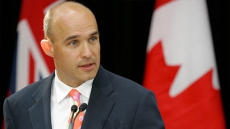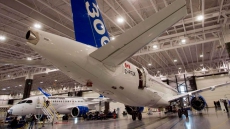CALGARY — Thirty years ago, shoulder pads were all the rage, Molly Ringwald was a rising teen movie star and low oil prices were wreaking economic havoc.
At least one of those will feel familiar to those working in the oil and gas industry these days.
There's been talk of the current oil rout being a repeat of the price crash that began in 1985 and lasted about a decade, but a report released Thursday suggests there's reason to hope the doldrums won't last as long this time around.
"This is not the worst price crash," said the paper's author, Robert Skinner, executive fellow at the University of Calgary's School of Public Policy.
"It is not the deepest, nor the fastest nor yet the worst."
According to the study, today's price collapse and the one from 30 years ago have one major thing in common: they were mostly driven by oversupply in the market rather than weak demand.
Outside of the Organization of Petroleum Exporting Countries, the big factor nowadays is U.S. shale oil, whereas back then the focus was on rising supplies from Alaska, Mexico and the North Sea.
But a big difference between the two crashes is that there was a lot more spare production capacity globally in the 1980s than there is today, meaning balance may be restored more quickly this time.

"If any silver lining can be found in the roiling storm clouds of the current rout, it is that the pendulum could swing sharply back by decade's end," Skinner wrote in the report.
"Natural production declines in old fields and investment cutbacks and cancellations around the world will eventually register in market balances once record inventories are drawn down."
However, the report said the recovery will likely be "bumpy," unlike the steady rise in oil prices following the more recent 2008-2009 crash that was driven largely by the global financial crisis.
Crude prices fell 65 per cent between June 2014 and August of this year. This week, the U.S. benchmark dipped below US$40 a barrel in intraday trading and settled at US$40.54 on Thursday.
Oil declined 67 per cent between November 1985 and March 1986.
In 2015, gross revenues in the Canadian oil and gas industry are expected to drop by $50 billion to $60 billion compared with 2014 and cash flow will fall to levels below those of 2000. That leads to layoffs, lower government revenues and reduced investment.
And the oilsands industry is much more ingrained in the overall Canadian economy now than it was three decades ago, meaning the impact of the crash is much more widespread this time, said Skinner.

Earlier this week, the Canadian Association of Oilwell Drilling Contractors said economic conditions are the worst they've been in a generation, with the number of active rigs in Western Canada at the same level they were in 1983.




